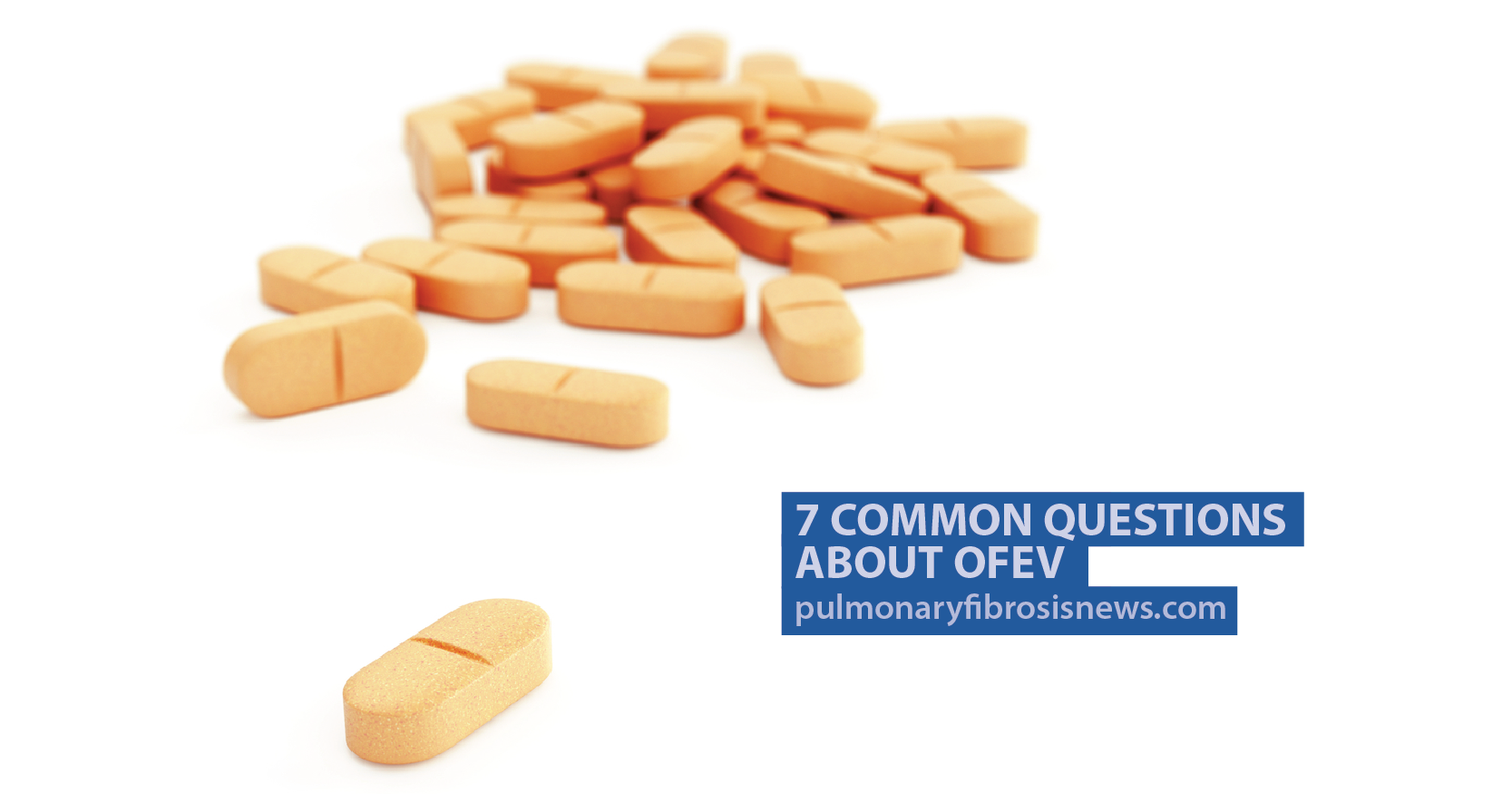7 Common Questions About Ofev
Written by |

Ofev (nintedanib) is a treatment used for patients with idiopathic pulmonary fibrosis (IPF). It is an anti-fibrotic drug that was approved by the FDA in October 2014 to help slow down the progression of the disease. Here are some of the most frequently asked questions about Ofev from the manufacturers, Boehringer Ingelheim.
How will Ofev help me?
In patients with a forced vital capacity (FVC) of 50 percent predicted or higher, it slows down the progression of the disease. The drug also works by reducing acute exacerbations of the disease up to 50 percent.
MORE: What you need to know about Ofev
How do I take Ofev?
Ofev comes in capsule form and one 150mg tablet should be taken twice a day with meals. If you experience any side effects, your doctor may reduce your dose to 100mg twice a day. If side effects persist with the lower dosage your doctor may advise you discontinue the medication.
MORE: First PF-ILD patient is enrolled in a Boehringer Ingelheim Phase 3 trial of Ofev therapy.
My IPF is stable. Do I still need to take medication?
IPF is a progressive disease, although its progression is unpredictable. Treatment is advisable to help slow down the progression of the disease.
MORE: Three travel considerations if you have a lung disease
What are the possible side effects of Ofev?
There are some side effects associated with Ofev, including diarrhea, vomiting, abdominal pain, and decreased appetite.
Diarrhea is the most common side effect of the drug, although the diarrhea can occur at any time during treatment with Ofev, most patients found that the events occurred during the first three months of taking Ofev.
MORE: Ofev used to successfully treat an acute episode of IPF, prompting a call for more studies.
How can I manage side effects?
Contact your healthcare provider at the first sign of side effects. Boehringer Ingelheim also advises that you eat small meals more frequently throughout the day and avoid foods that are fried or spicy, along with carbonated drinks.
Over-the-counter medications for diarrhea may be taken.
MORE: Find out more about the stages of pulmonary fibrosis.
Why is it important to continue taking Ofev?
Because IPF is a progressive disease, you are more likely to preserve more of your lung function for a longer time if you continue taking the drug.
MORE: New knowledge about Ofev and Esbriet may lead to better lung fibrosis therapies.
Is Ofev the right therapy for me?
This is a decision you will need to reach with your doctor. However, you should not take Ofev if you are allergic to nintedanib, soy or peanuts.
MORE: Using a spirometry device to assess pulmonary fibrosis severity.
Pulmonary Fibrosis News is strictly a news and information website about the disease. It does not provide medical advice, diagnosis or treatment. This content is not intended to be a substitute for professional medical advice, diagnosis, or treatment. Always seek the advice of your physician or another qualified health provider with any questions you may have regarding a medical condition. Never disregard professional medical advice or delay in seeking it because of something you have read on this website.





